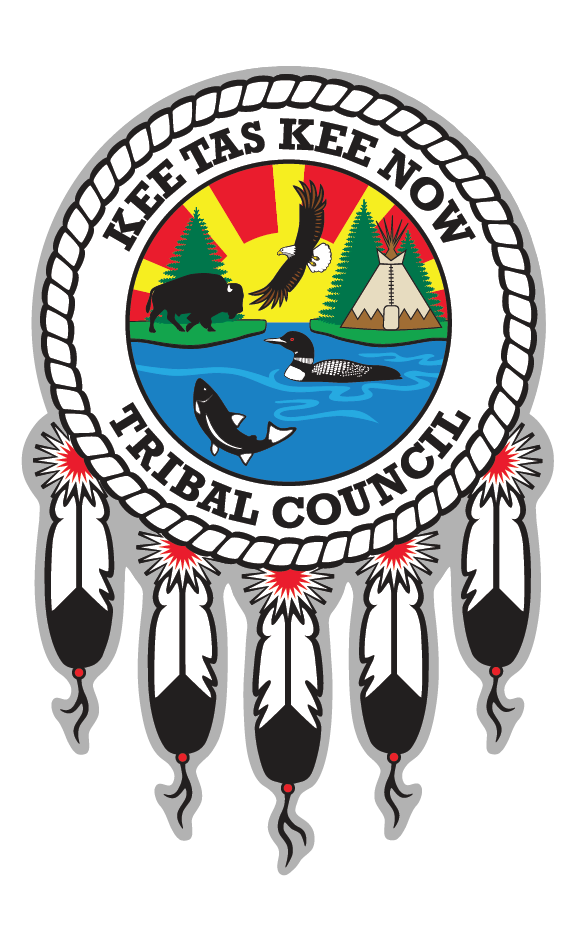Frequently Asked Questions (FAQs)
Find answers to the most common questions about KTCEA schools, programs, transportation, registration, student supports, and more. This resource is here to help parents, students, and community members stay informed and connected to our education system.
Q: What are school hours?
School hours are 8:50 am - 3:25 pm, Mon–Fri
Q: How do I find out which school my child should attend?
KTCEA serves six community schools (Atikameg, Clarence Jaycox, Elizabeth Quintal, Kateri, Little Buffalo, Outreach). Contact your local school principal or central office for catchment details: https://www.ktcea.ca/schools
Q: When does the school year start and end?
Download our latest School Calendar: https://www.ktcea.ca/about/calendar
Q: What are the KTCEA’s hours?
Central office hours are 8:30 am–4:30 pm, Mon–Fri. https://www.ktcea.ca/about/contact
Q: How do I reach staff or admin?
Contact the Central Office listed on the Contact page. https://www.ktcea.ca/about/contact
Q: How do I register my child?
Download the K-4, K-12, or Outreach registration forms from the KTCEA "Student Registration" page, then submit them to your local school https://www.ktcea.ca/parent-resources/student-registration
Q: What documents are required?
Basic documentation (proof of age, residency) is needed; a full list is provided on the registration form.
Q: What curriculum does KTCEA follow?
KTCEA uses a Common, Consistent Curriculum that integrates provincial outcomes with Indigenous and Cree ways of knowing. It includes Cree language, land-based learning, early learning, inclusive education, sports, and career counselling
https://www.ktcea.ca/programs-amp-services/curriculum-and-instruction
Q: Are Cree or land-based learning offered?
Yes! KTCEA offers Cree language instruction and land-based learning opportunities in all schools
Q: What supports are available?
KTCEA’s administrative procedures include Inclusive Education, specialized assessments, and supports for diverse learning needs
https://www.ktcea.ca/programs-amp-services/curriculum-and-instruction/inclusive-education
Q: Does KTCEA take attendance?
Yes. KTCEA’s administrative procedures AP 330 and AP 330A cover attendance rules and procedures.
View the AP links here:
AP 330: Student Attendance - https://www.ktcea.ca/about/administrative-procedures/9453
AP 330A: Attendance Taking Procedures & Rules - https://www.ktcea.ca/about/administrative-procedures/9454
Q: What health services are provided?
AP 315–316 outline health service supports (e.g. administering medication, anaphylaxis, first aid). First-aid kits are required on-site and during off-campus activities.
AP 315 - https://www.ktcea.ca/about/administrative-procedures/9443
AP 316: Administering Medical Treatment to Students - https://www.ktcea.ca/about/administrative-procedures/9444
AP 316A: Action Steps for Anaphylaxis Management - https://www.ktcea.ca/about/administrative-procedures/9445
AP 316B: How to Use the Epi-Pen Auto-Injector - https://www.ktcea.ca/about/administrative-procedures/9447
AP 316C: Differences asthma and allergies - https://www.ktcea.ca/about/administrative-procedures/9449
AP 316D: Administering Medical Treatment - Responsibilities of the Bus Drivers - https://www.ktcea.ca/about/administrative-procedures/9576
AP 316E: Request for Administration of Medication/Medical Treatment - https://www.ktcea.ca/about/administrative-procedures/10130
Q: What if my child(ren) have head lice?
Each year, principals, in collaboration with Nation Health Centers and/or Alberta Health Services, or utilizing AHS online resources, will ensure that students, parents and school staff are provided with information regarding the identification, prevention and treatment of head lice. An information package will be sent home with each student in September.
More information can be found here:
AP 318: Student Health - Pediculosis - Head Lice - https://www.ktcea.ca/about/administrative-procedures/9450
Q: What are emergency procedures?
AP 692–694 detail emergency plans and drills. Field trips require risk assessments, incident management, and emergency planning.
More information can be found here:
AP 690: Safety Management System - https://www.ktcea.ca/about/administrative-procedures/9572
AP 691: Incident Management - https://www.ktcea.ca/about/administrative-procedures/9558
AP 693: Emergency Response Measures - https://www.ktcea.ca/about/administrative-procedures/9560
AP 694: Authority and School Level Emergency Response Plan - https://www.ktcea.ca/about/administrative-procedures/9561
Q: Is bus transportation provided?
Yes. KTCEA provided bus service for all of our Schools.
Q: How will I know if the bus is cancelled?
School Bus Cancellations may happen for many reasons.
More information can be found here:
https://www.ktcea.ca/about/administrative-procedures/9533
Q: Do field trips occur?
Yes—curricular, co/extra‑curricular, and land-based trips are part of learning.
More information can be found here:
https://www.ktcea.ca/about/administrative-procedures/9432
Q: How are parents involved?
Through School‑Parent Advisory Circles. Meetings are held monthly throughout the school year. Please contact your school to get information on when the next meeting will be held.
Parent engagement in events, councils, and feedback processes is encouraged. There are also Parent / Guardian Surveys conducted during the school year.
Q: How can I stay informed about KTCEA?
Stay connected through:
Your School will send home printed materials such as posters, letters and other school information as necessary. They will also post on their Facebook page, find your school’s page here: https://www.ktcea.ca/schools
For more information on our Authority’s communications, please visit:
Facebook page - https://www.facebook.com/KTCEA
Website - https://www.ktcea.ca/
Q: What supports are available?
KTCEA provides mental health supports, trauma-informed care, and partnerships with community health services.
More information can be found here:
https://www.ktcea.ca/about/administrative-procedures/9443
Q: How do students prepare for post‑secondary?
High School Career Counselling programs, support for diploma exams, and outreach schools are available to help with future planning and graduation.

